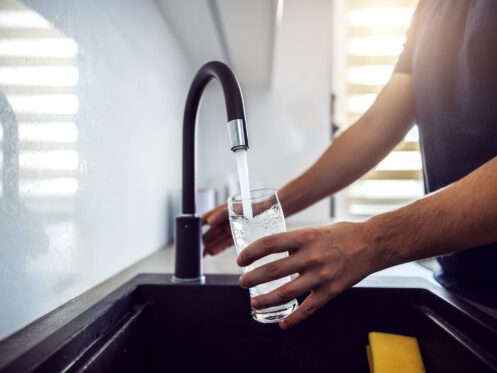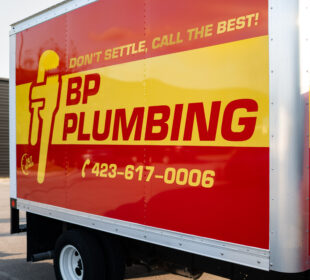Many homes struggle with unpleasant-tasting or bad-smelling water. If you’ve noticed these issues or are concerned about the overall quality of your home’s water, investing in a whole-home water filtration system could be the solution. In this article, we’ll explore how these systems work and the key benefits they offer to improve your water quality throughout your entire home.
Why Whole-Home Water Filtration Is a Great Investment
While most municipalities treat their water supplies, the water that arrives at many homes isn’t always as clean and pure as you might expect. This is especially true in areas with older municipal water systems, where contaminants like heavy metals can leach into the water as it flows through aging pipes. Additionally, municipal water treatment plants don’t always remove all contaminants. Studies have shown that many municipal water supplies contain trace amounts of man-made chemicals such as pesticides, fertilizers, and pharmaceuticals—including birth control chemicals like estrogen. Furthermore, almost all municipal water contains chlorine and chloramines, which are added to kill viruses and bacteria during treatment.
Because of the potential for these contaminants and impurities to remain even after treatment, it’s ultimately up to homeowners to ensure their water is clean and safe. This is the main benefit of installing a whole-home water filtration system. Most systems are capable of removing around 97% of chloramines and a majority of other harmful substances.
By ensuring your home’s water is clean and pure, you can also reduce or eliminate reliance on bottled water. The average American family spends over $1,000 annually on bottled water. With a whole-home water filtration system, you can significantly cut this expense, allowing the system to pay for itself in a relatively short time. Plus, your filtered water will taste just as good as—or even better than—bottled water
Understanding How Whole-Home Water Filtration Systems Operate
Water filtration can be achieved through several methods, all aimed at removing contaminants—but each works a bit differently. For point-of-use filtration, reverse osmosis (RO) systems are among the most popular. These units use a semi-permeable membrane that allows water to pass through while trapping larger particles and contaminants. For best results, it’s often recommended to go with a multi-stage RO system, which combines various filtration techniques for more thorough purification.
That said, RO systems come with a few limitations. They typically require a booster pump to maintain water pressure, meaning they consume electricity. Without this pump—or a holding tank—you’ll likely experience low water flow due to how slowly water moves through the membrane. Another downside is that whole-home RO systems tend to waste water, as they must regularly flush the filter to keep functioning effectively. For this reason, RO systems are often reserved for kitchen use rather than the entire house.
Whole-home filtration systems, on the other hand, are designed to remove a wide range of contaminants at different stages. These systems usually start with a pre-filter, which captures large particles like sand or sediment. Next comes either an activated carbon filter or an RO filter to remove chemical impurities such as chloramines and improve taste and odor. In systems that include reverse osmosis, water often passes through a carbon filter afterward for additional purification. Finally, a post-filter captures any lingering contaminants that may still be present after the earlier stages.
Many systems also feature optional UV (ultraviolet) filtration. As water flows through the UV chamber, harmful microorganisms like viruses and bacteria are neutralized, thanks to the light disrupting their DNA.
Benefits of Whole-Home Filtration Systems Installed at the Point of Entry
Whole-home systems are installed at the point where water enters your house, meaning every drop of water—whether it ends up in the shower, kitchen, or laundry room—is filtered before use. Unlike smaller, under-sink units, these systems deliver clean, safe water to every tap. And importantly, a properly designed system won’t reduce your home’s water pressure.
At BP Plumbing, we take pride in serving the Chattanooga community with top-tier plumbing services. Whether you’re looking to install a new whole-home water filtration system or need maintenance on an existing one, our team is here to help. Contact us today to learn more or schedule your next appointment.



